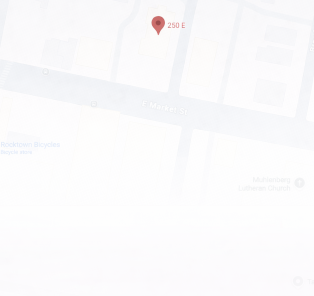Society is unfortunately becoming more knowledgeable about defrauding and embezzling from Estates. It is becoming more common that someone knows or at least has heard from a family member or friend about a situation where an Executor has not provided all beneficiaries with the utmost fiduciary duties when handling an Estate. What society does not always hear about is the aftermath regarding the consequences from embezzlement or defrauding of an Estate.
The most common charges that are pressed on a person who has been found guilty of defrauding an Estate could include larceny, perjury, embezzlement, fraud, forgery, breach of fiduciary duty, or even Tortious interference with inheritance rights. There are additional charges of course depending on the severity of the defrauding or embezzlement of an Estate and generally relies upon how much the Estate is worth in general.
For a legal consultation with a personal injury lawyer, call (434) 817-3100
Common consequences entail fines that could range and vary but in excess of $150,000.00 and not to mention being sentenced to jail for punishment in larger Estates I have common knowledge of an Executor defrauding an Estate for embezzling and Estate for $150,000.00 and sentenced to eighteen (18) months in jail. Again, all consequences vary upon how much the Estate is worth, and how much the Estate was defrauded by the Executor or Trustee.
Be alert for warning signs and do not hesitate to contact an Attorney for a consultation to discuss your concerns. Unfortunately, executor crimes aren’t uncommon. Sometimes an executor makes genuine mistakes either because the executor is sloppy, overwhelmed, keeps poor records or is simply in over his/her head. In other instances, the Executor or Trustee intentionally tries to enrich himself/herself at the expense of the estate.
There are a number of warning signs that may indicate an Executor or Trustee is being dishonest and a few examples include failing to share information in an open, honest and timely manner. The Executor or Trustee should meet all probate court filing deadlines and be willing to answer any beneficiary’s questions that they might have or ask. Taking too long to finalize the estate can reflect a huge warning sign regarding Estates. While it can actually take a year or more to finalize an estate, a simple estate shouldn’t normally drag out for several years especially at least not without good reason.
A few other warning signs are if the Executor or Trustee is threatening beneficiaries for asking too many questions. “I’ve heard of executors saying things like, ‘If you ask too many questions, I’ll make sure you don’t get your share of the inheritance,’” Or, “The will says you don’t have any right to contest what I do.” That’s not the purpose of a “no contest or contestation clause”. It doesn’t mean that the Executor has the right to do whatever she or he pleases without question.”
Click to contact personal injury lawyers today
In my opinion the most common warning sign is when the Executor or Trustee is trying to take advantage of the Estate by virtue of their position as Executor or Trustee. Often an Executor or Trustee’s responsibilities involve selling certain assets, such as furniture, a car or a home and then splitting the cash between beneficiaries. The Executor or Trustee has a fiduciary duty to get the most money possible in these sales but some will take advantage of their status to get a deal.
If you are the beneficiary of an estate and think the Executor or Trustee is being dishonest there are several steps you can take. Consider getting an opinion from a Probate Attorney who is not involved in the estate. The Attorney can review the Will or Trust Agreement, including the probate court filings and any correspondence you’ve had with the Executor or Trustee in an effort to determine whether something is inaccurate.
Complete a Case Evaluation form now
Your lawyer can also take your concerns and available evidence to the probate court that’s overseeing the Estate or local law enforcement authorities. After they review the evidence, they may decide to take legal action. This could include issuing a court order that requires or forbids the Executor or Trustee from performing certain actions, removing the Executor or Trustee and appointing a replacement, or lastly filing criminal charges against them for their indiscretions.
Regardless of the probate court or law enforcement’s actions, you may also have grounds for a civil lawsuit against the Executor or Trustee. A probate lawyer can review your situation and tell you if this is a viable option. Remember to never be afraid to ask questions, because if you remain silent; there may not be any funds remaining for you to recover.
Call (434) 817-3100 or complete a Case Evaluation form



